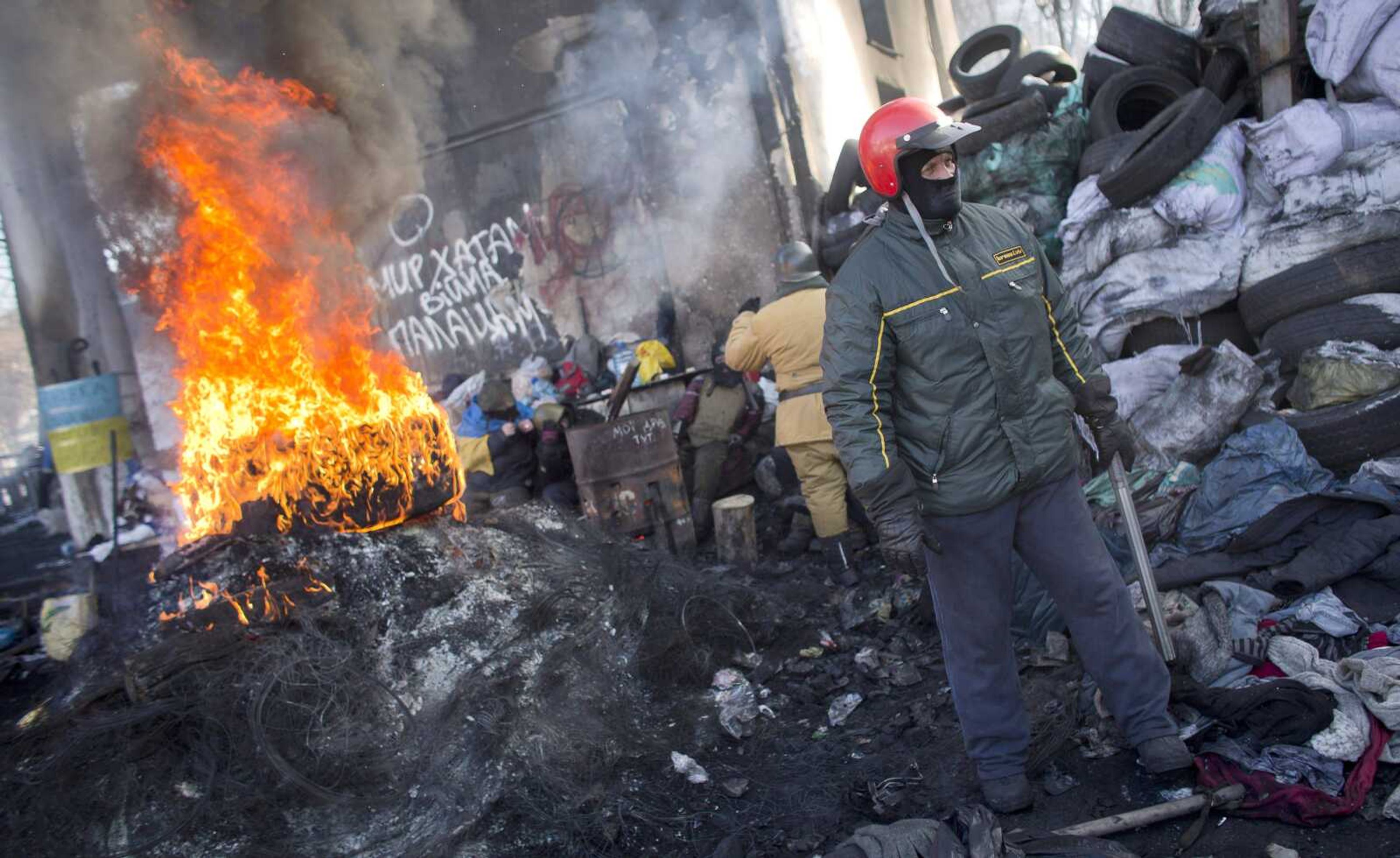Ukraine leader's sick leave prompts guessing game
KIEV, Ukraine -- Amid the deepest turmoil since the Orange Revolution, President Viktor Yanukovych's announcement Thursday that he was taking indefinite sick leave prompted a guessing game among Ukrainians about what was happening to their country...
KIEV, Ukraine -- Amid the deepest turmoil since the Orange Revolution, President Viktor Yanukovych's announcement Thursday that he was taking indefinite sick leave prompted a guessing game among Ukrainians about what was happening to their country.
Debate raged on whether he was just sick or whether he was leaving the limelight in preparation for something, possibly either cracking down or stepping down.
Yanukovych has faced two months of major protests that sometimes paralyze central Kiev and have spread to other cities. The protests started after he backed out of a long-awaited agreement to deepen ties with the European Union in favor of Russia, but quickly came to encompass a wide array of discontent over corruption, heavy-handed police and dubious courts.
The official line is that the 63-year-old Yanukovych has an acute respiratory illness and a high fever.
But the opposition isn't buying it. Some say he is looking for an excuse to avoid further discussions with opposition leaders, which have done nothing to resolve the tensions.
Vitali Klitschko, a leading opposition figure, has a more ominous theory -- the president could be pretending to take himself out of action in preparation for imposing a state of emergency. That has been a persistent worry of the opposition since violent clashes two weeks ago killed three protesters.
"I remember from the Soviet Union it's a bad sign -- a bad sign because always if some Soviet Union leaders have to make an unpopular decision, they go to the hospital," Klitschko said.
Yanukovych's press office says the president is still in charge of the country, but there was no indication of how long he might be on leave or how much work he would be able to do. He isn't known to have serious health problems, although his office says he has taken sick leave twice before -- once for a knee problem and the other time also for a respiratory illness.
One political commentator suggested the announcement could be a ruse to take him out of power, as in the attempted coup against Soviet leader Mikhail Gorbachev in 1991.
"I don't remember official statements on Viktor Yanukovych's colds. But I remember well, when on Aug. 19, 1991, the vice president of the USSR, Gennady Yanayev, announced the serious illness of Mikhail Sergeyevich Gorbachev," Vitaly Portnikov wrote on his Facebook page.
Still, others took the announcement at face value. Analyst Mykhailo Pohrebinsky noted that Yanukovych had made a late-night visit to parliament amid tense discussions Wednesday and "those who were close to him said he really was very pale and exhausted."
Hours after the government announced his sick leave, Yanukovych issued a statement to upbraid his political foes, saying "the opposition continues to escalate the situation and urges people to stand in the frost for the sake of the political ambitions of several of its leaders."
Temperatures in Kiev have dropped as low as minus 4 on some nights, bringing severe discomfort to those manning a round-the-clock protest tent camp on Kiev's main square.
Despite offering several concessions, authorities have so far failed to mollify the protesters.
In a series of moves aimed at resolving the crisis, parliament voted Tuesday to repeal harsh anti-protest laws. Yanukovych must formally sign that repeal and it was unclear whether he could do so while on sick leave.
He also has accepted the resignation of his prime minister. But protesters say the moves are insufficient -- they want him out and new elections held.
On Wednesday, the parliament passed a measure offering amnesty to some of those arrested in the protests. That new law, however, was only valid if demonstrators vacate most of the government buildings they occupy in Kiev and in some western cities. The offer was quickly greeted with contempt by the opposition, which regards the arrests during the protests as fundamentally illegitimate.
There are conflicting figures on how many protesters are now in custody. One opposition lawmaker said Wednesday there were 328, whom he characterized as "hostages." But the prosecutor-general's office said Thursday there were 140.
The protests had been mostly peaceful until mid-January, when demonstrators angered by the new anti-protest laws launched violent clashes with police near parliament. Three protesters died in the clashes, two of them from gunshot wounds. Police insist it wasn't from their guns.
On Thursday, Interior Minister Vitali Zakharchenko said a 30-year-old police officer manning the front lines of the Kiev protests had died of a heart attack overnight. Although there have been no clashes for several days, tensions at the site are heavy. Zakharchenko said the policeman's death was "a consequence of the daily stress."
After stepping back from the agreement with the EU, Yanukovych got a $15 billion aid package from Russia that also gives Ukraine lower prices for the Russian gas upon which the country depends. That aid from Russian President Vladimir Putin is key to propping up Yanukovych and keeping the struggling Ukrainian economy from falling into bankruptcy.
But as the crisis drags on, concerns are rising about whether Russia will keep its financial commitment if Yanukovych's government collapses.
Putin said Wednesday the aid would still be valid, but suggested that delivery of the next tranche could be delayed until the formation of a new Ukrainian government. That appeared to refer to waiting until a new prime minister is named.
Connect with the Southeast Missourian Newsroom:
For corrections to this story or other insights for the editor, click here. To submit a letter to the editor, click here. To learn about the Southeast Missourian’s AI Policy, click here.









